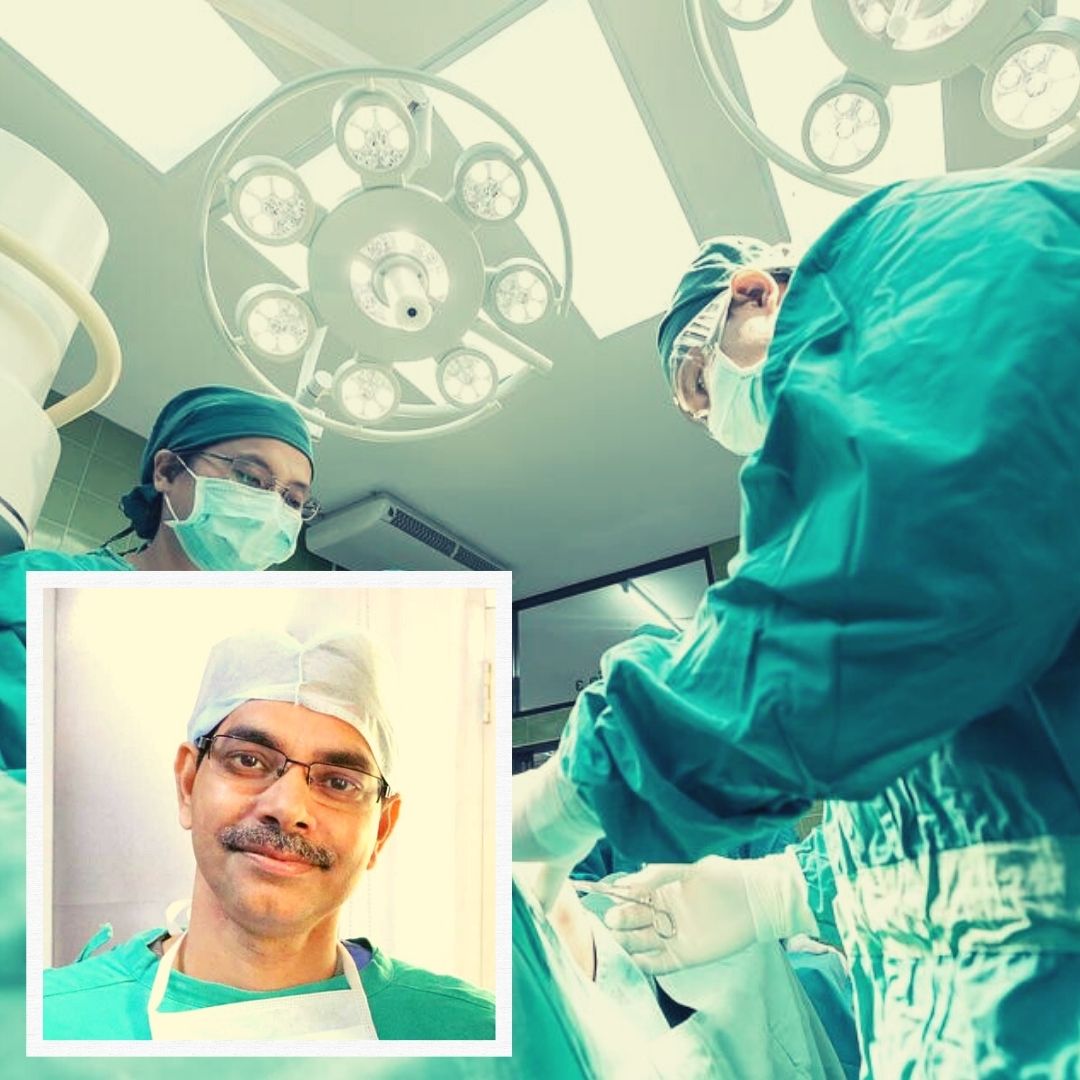Delhi Surgeon Plans World's First Womb Transplant To Allow Trans Woman Carry A Baby
Writer: Tashafi Nazir
For most people, journalism sounds hectic and chaotic. For her, it's a passion she has been chasing for years. With an extensive media background, Tashafi believes in putting efforts on presenting a simple incident in the most interesting way.
Others/World, 10 May 2022 11:58 AM GMT
Editor : Shiva Chaudhary |
A post-graduate in Journalism and Mass Communication with relevant skills, specialising in content editing & writing. I believe in the precise dissemination of information based on facts to the public.
Creatives : Tashafi Nazir
For most people, journalism sounds hectic and chaotic. For her, it's a passion she has been chasing for years. With an extensive media background, Tashafi believes in putting efforts on presenting a simple incident in the most interesting way.
Dr Narendra Kaushik, who runs a gender reassignment clinic in the national capital, has said he is 'very, very optimistic' about making the success of the procedure.
A Delhi-based surgeon will attempt to transplant a womb into a trans woman who was born a man — with the view of making them pregnant.
Dr Narendra Kaushik, who runs a gender reassignment clinic in the national capital, has said he is 'very, very optimistic' about making the success of the procedure.
The risky process will involve taking the reproductive organs from a donor or a dead person who has transitioned the other way and had their organs removed.
Impregnating Trans Woman Requires IVF And C-Section
Impregnating a trans woman would be an even more significant achievement and would require the use of IVF and a C-section, as they do not have a fully functioning vagina.
The procedure cannot connect the woman's uterus to the fallopian tubes, so the operation doesn't lead to any person becoming pregnant naturally.
But experts claim that it is theoretically possible to impregnate a trans woman using IVF, with the embryo being implanted. In 2017, doctors stated that medical advances mean it's theoretically possible for trans women to give birth after a successful operation.
"Every transgender woman wishes to be as female as possible, which includes being a mother," The Mirror quoted him as saying. "The way towards it is with a uterine transplant, the same as a kidney or other type of transplant. This is the future. We cannot predict exactly when this will happen but it is going to happen very soon," he added.
Dr Kaushik has not revealed the recipient or given a timetable for the surgery, but he added: 'We have our plans and are very optimistic about this.'
The surgeon's clinic, Olmec, is at the centre of a booming industry in New Delhi that sees the rival city Bangkok as the sex-change capital of the world.
He said nearly a fifth of his customers are from abroad, with many flying from the UK, where gender reassignment surgery is accessible on the NHS but subject to waiting times, Daily Mail reported.
Science Behind Womb Transplants Still Murky
While gender reassignment surgery is prevalent, the science behind womb transplants involving trans people is still murky.
There have been over 100 successful woman-to-woman uterus transplants since 2014, and scientists can now impregnate female recipients.
But there are far more obstacles to scale when inserting a female's reproductive organs into a biological man. Medical records show that the procedure has only been attempted once in history, when Danish trans artist Lili Elbe had the surgery in 1931.
The 48-year-old, one of the earliest known gender reassignment patients, had the surgery in Germany with the hope of being able to have kids with her fiance. But she developed post-surgery complications and died from cardiac arrest three months later without being able to conceive.
However, doctors point out that advances in medicine mean it is now theoretically possible for a trans woman to bear children after a womb transplant. The sticking point is that only individuals born female can make eggs, which means a woman cannot get pregnant naturally.
So doctors who attempt it will require IVF, when the eggs are fertilised outside the body and then inserted.
Womb Transplant Still An Experimental Procedure
Womb transplants, which cost £50,000 per surgery, are still considered an experimental procedure. Major complications recipients suffer include organ rejection, blood clots, urinary tract infections and internal bruising. Adverse side effects of immunosuppressants, drugs used to reduce the risk of the body rejecting the organ, may also lead to other complications.
Womb transplants are predominantly performed using a womb donated from a living woman, although modern organ-freezing techniques have made it possible for deceased donors' uteri to be used too.
In 2019, the first baby was born who had been carried to term in a womb transplanted from a dead donor in Cleveland, Ohio.
The womb and blood vessels were removed from a 45-year-old woman, herself a mother, who had died of a stroke. They were then implanted into a new mother, born without a womb, in an 11-hour operation, and the blood vessels connected to her own.
The woman then began to menstruate 37 days after the operation and then had regular periods until she became pregnant seven months later. An embryo was implanted using eggs taken from her ovaries before the womb transplant procedure and fertilised using IVF. The baby thrived and was born after 35 weeks and three days by caesarean section.
During the C-section, the doctors also removed the woman's implanted womb, and both mother and baby recovered normally.
Also Read: Historic! In A First, Assam's Tea Gardens Get High Schools In 75 Years Of India's Independence
 All section
All section















